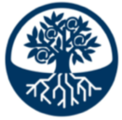Piracy
DNS Seal, a best practices wiki for DNS | |
 |
Piracy, in the context of online interaction, involves the "unlawful reproduction and/or distribution" of copyrighted content without the proper consent.[1] Internet piracy frequently involves media files (such as music, television programs, movies, and books) or computer software.[1] Internet piracy has grown rapidly over the past few decades and is considered a "tenacious and persistent" problem online.[2]
Public Perception edit
There are varying and contradictory opinions surrounding online piracy. Statistics complied by Go-Globe revealed that in 2010 up to 70% of Internet users found nothing wrong with Internet piracy.[3] A study of American consumers conducted more recently in 2013 found "91 percent support strong enforcement of laws to protect against the sale of counterfeit and pirated goods." [4] People seem to agree that property rights should be protected but also think that online piracy and downloading is acceptable.
Outcome edit
The outcome of online piracy is a loss in sales for the rights holders and general economic loss, including the potential loss of jobs. Additionally, illegally downloading files or software can expose a network to malware and viruses.
- According to Go-Globe, around 71,000 jobs are lost per year due to the economic effects of piracy.[3] The same source claims that the music industry lost $12.5 billion in revenue in 2010 and that $59 billion worth of software was illicitly downloaded.[3]
Historical Use edit
- Traditionally, Internet piracy has been used to download and share files consisting of copyrighted materials. Many feel incidences of online piracy are reaching epidemic proportions.
- Online piracy has grown significantly in the past few years.[5] For example, between 2010 and 2012, there was a 160% increase in "the amount of bandwidth used for copyright infringement in Europe, North America, and the Asia Pacific."[6] According to the Los Angeles Times, "in January 2013, 327 million unique users illegally sought copyrighted content."[6]
- Movies are a form of media that is frequently pirated. The U.S. film industry loses $25 billion annually due to pirated movies.[7]
- A famous case of online media piracy involved Napster, which allowed the free and illegal downloading of popular music.[1] More recently, the individuals behind Megauploads, a site which allowed "users to anonymously transfer large files like movies and music," were charged in 2012 for illegal activities involving Internet piracy.[8] Allegedly, the site caused $500 million in damages to copyright owners.[8]
ICANN Policy edit
- Online piracy is mentioned in the 2013 Registry Agreement (RA), signed by all new gTLD applicants, which states that registries must require their registrars to include policies that prohibit registrants from activities like piracy.[9][10] Additionally, registries are required to "periodically conduct a technical analysis to assess whether domains in the TLD are being used to perpetrate security threats" and to keep security files on threats and the remedial actions taken by the registries.[9]
Legislation edit
Online piracy, as with other forms of piracy and copyright infringement, is illegal in the United States.
- 1998 Digital Millennium Copyright Act (DMCA): This act updated copyright legislation and established limited liability for online service providers under certain unique conditions.[11][12] An internet service provider (ISP) qualifies for limited liability as long as it has a "policy of terminating in appropriate circumstances the accounts of subscribers who are repeat infringers" and utilizes standard technical measures.[12] The DMCA also outlines procedures for removing illegally obtained copyrighted materials from the web.[13]
- View a summary of the DMCA.
- Stop Online Piracy Act (SOPA) & Protect IP Act (PIPA): These controversial acts caused a large uproar, especially in the Internet and tech communities, which lead to their postponement in January of 2012.[13] SOPA was intended to help stop piracy by cutting off access to websites and servers based internationally that supplied pirated content.[13] Opponents, however, pointed out that the bill could lead to increased censorship in addition to putting "site operators--even those based in the U.S.--on the hook for content that their users upload."[13] In protest, several large and prominent sites went dark, self-censored, or posted statements that opposed SOPA and PIPA.[14][15] More than 10,000,000 signatures were collected in opposition of the bills.[14]
- See some of the SOPA and PIPA Protests
Additional Resources edit
- View statistics on Online Piracy
- Read an Intellectual Property Consumer Opinion Report
- Read Sizing the Piracy Universe, which was cited in the LA Times
Related Articles edit
References edit
- ↑ 1.0 1.1 1.2 What is Internet Piracy?, WiseGeek
- ↑ Study: Internet Piracy Is 'Tenacious and Persistent': Voluntary efforts have yet to reverse the trend by Katy Bachman (September 17, 2013 ), Adweek
- ↑ 3.0 3.1 3.2 Online Piracy in Numbers – Facts and Statistics (Infographic) (November 1, 2011), Go-Gulf.ae
- ↑ http://www.theamericanconsumer.org/wp-content/uploads/2013/07/Final-IP-Study-w-Cover.pdf
- ↑ Sizing the Piracy Universe (PDF), Copyright Alliance
- ↑ 6.0 6.1 Online piracy of entertainment content keeps soaring by Richard Verrier (September 17, 2013), Los Angeles Times
- ↑ Online Piracy Statistics 2012 (Infographic) by Anson Alexander (March 15, 2012), AnsonAlex.com
- ↑ 8.0 8.1 7 Charged as F.B.I. Closes a Top File-Sharing Site by Ben Sisario (January 19, 2012), The New York Times
- ↑ 9.0 9.1 View the Updated Registry Agreement (PDF), Internet Corporation for Assigned Names and Numbers (ICANN)
- ↑ ICANN Adopts GAC Advice on Whois, Security Enhancements (August 1, 2013), INTA Bulletin (Volume 68, Number 14), International Trademark Association
- ↑ DIGITAL MILLENNIUM COPYRIGHT ACT (DMCA), EduCause.edu
- ↑ 12.0 12.1 THE DIGITAL MILLENNIUM COPYRIGHT ACT OF 1998: U.S. Copyright Office Summary (December 1998), Copyright.gov
- ↑ 13.0 13.1 13.2 13.3 SOPA explained: What it is and why it matters by Julianne Pepitone (January 20, 2012), CNN Money
- ↑ 14.0 14.1 The January 18 Blackout / Strike: In Numbers and Screenshots, SOPAstrike.com
- ↑ SOPA protests shut down Web sites by David A. Fahrenthold (January 17, 2012), Washington Post